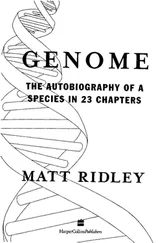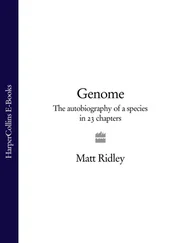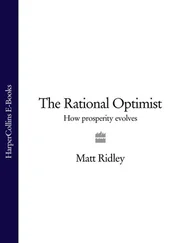The Queen - Matt Ridley
Здесь есть возможность читать онлайн «The Queen - Matt Ridley» весь текст электронной книги совершенно бесплатно (целиком полную версию без сокращений). В некоторых случаях можно слушать аудио, скачать через торрент в формате fb2 и присутствует краткое содержание. Жанр: Старинная литература, на английском языке. Описание произведения, (предисловие) а так же отзывы посетителей доступны на портале библиотеки ЛибКат.
- Название:Matt Ridley
- Автор:
- Жанр:
- Год:неизвестен
- ISBN:нет данных
- Рейтинг книги:4 / 5. Голосов: 1
-
Избранное:Добавить в избранное
- Отзывы:
-
Ваша оценка:
- 80
- 1
- 2
- 3
- 4
- 5
Matt Ridley: краткое содержание, описание и аннотация
Предлагаем к чтению аннотацию, описание, краткое содержание или предисловие (зависит от того, что написал сам автор книги «Matt Ridley»). Если вы не нашли необходимую информацию о книге — напишите в комментариях, мы постараемся отыскать её.
Matt Ridley — читать онлайн бесплатно полную книгу (весь текст) целиком
Ниже представлен текст книги, разбитый по страницам. Система сохранения места последней прочитанной страницы, позволяет с удобством читать онлайн бесплатно книгу «Matt Ridley», без необходимости каждый раз заново искать на чём Вы остановились. Поставьте закладку, и сможете в любой момент перейти на страницу, на которой закончили чтение.
Интервал:
Закладка:
It is easy to spot when male-sterile genes are at work. The plants have two types: hermaphrodite and female. Such populations of plants are known as gynodioecious; androdioecious plants, with males and hermaphrodites only, are almost unknown. In wild thyme, for example, about half the plants are usually 'female, the rest hermaphrodites. The only way to explain the fact that they have stopped halfway along the one-way street is to posit a continuing battle between the organelles ' male-killer genes and nuclear fertility restorer genes. Under certain conditions the battle will reach a stalemate; any further advance by one side gives the other an advantage and the ability to force it back: The more common male-killers get, the more restorer genes will be favored, and vice-versa."
The same logic does not apply to animals, many of which are not hermaphrodites. It pays an organelle gene to kill males only if by doing so some energy or resource is diverted to the sisters of the killed males; hence, male-killing is rarer. In hermaphroditic plants. if the male function dies, the female function of the plant grows more vigorously or produces more seed. But a male-killer gene in, say, a mouse, by killing the males in a brood, does not benefit those mice's sisters at all. Killing males because they are evolutionary culs-de-sac for organelles would be pure spite.'°
Consequently, the battle is resolved rather differently in GENETIC MUTINY AND GENDER
::: I07:::
animals. Imagine a population of happy hermaphroditic mice.
There arrives in its midst a mutation, which happens to kill male gonads (testes). It spreads because females that have the gene do rather well: They have twice as many babies because they put no effort into making sperm. Soon the population consists of hermaphrodites and females, the latter possessing the male-killing gene: It is possible for the species to escape back to hermaphroditism by suppressing the male-killer gene, as many plants have obviously done, but it is just as likely that something else will happen before a mutation that causes the suppression can appear and take effect.
Maleness is a rather rare commodity at this stage. The few remaining hermaphroditic mice are at a premium because only they can produce the sperm that the all-female mice still need. The rarer they get, the better they do. No longer does it pay to have the male-killing mutation: Rather, the reverse. What would really pay the nuclear genes would be a female-killer gene so that one of the hermaphrodites could give up its female function altogether and concentrate on selling sperm to the rest. But if such a female-killing gene appeared, then the remaining hermaphrodites, which lack both the female-killer and the male-killer genes, are no longer at a premium. They are competing with pure males and pure females: Most of the sperm on offer comes complete with female-killer genes, and most of the eggs available to fertilize come complete with male-killer genes, so their offspring are constantly forced to specialize. The genders are separated."
The answer to the question "Would you not avoid paying the cost of maleness by being a hermaphrodite?" is simple: Yes, but there is no way to get there from here. We are stuck with two genders:
THE CASE OF THE 1MMACULATE TURKEYS
By separating their genders, animals ended the first mutiny of the organelles: But it was a temporary victory. The organelle genes renewed their mutiny, this time with the "aim " of driving all males
::: 108 :::
The Red Queen
into extinction and leaving the species all-female. This might seem to be a suicidal ambition because a male-less sexual species would become extinct in one generation, taking all of its genes with it, but there are two reasons this does not faze the organelles. First, they can and do convert the species into a parthenogenetic species, able to give virgin birth without sperm—in effect, they try to abolish sex—and second, they behave like cod fishermen or whale hunters or the grazers of commons. They seek short-term competitive advantage even when it leads to long-term suicide: A rational whale hunter does not spare the last pair of whales so that they. can breed; he kills them before his rival does and banks the proceeds: Likewise, an organelle does not spare the last male lest the species become extinct, for it faces extinction anyway if it is in a male: Consider a ladybird beetle 's brood. If the male eggs die, the female eggs in the brood eat them and get a free meal as a result.
Not surprisingly, there are male-killing genes at work in ladybirds, flies, butterflies, wasps, and bugs—about thirty species of insects have been studied so far—if and only if the young in a brood are in competition with one another: Those male-killing genes are not in organelles, however, but in bacteria that live inside the insects '
cells: Those bacteria, like the organelles, are excluded from sperm but not from eggs: 32
In animals such genes are called sex-ratio distorters: In at least twelve species of small parasitic wasps called Trichogramma, a bacterial infection makes the female produce only female young even from unfertilized eggs: Since all wasps have a peculiar system of sex determination in which unfertilized eggs become male, this does not condemn the race to extinction and helps the bacterium get into the next generation via the cytoplasm of the egg: The whole species becomes parthenogenetic for as many generations as the bacterium is there: Treat the wasps with an antibiotic and, to and behold, two genders reappear among the offspring. Penicillin cures virgin birth:"
In the 1950s scientists at an agricultural research center in Beltsville, Maryland, noticed that some turkey eggs began to develop without being fertilized: Despite heroic efforts by the scientists, GENETIC MUTINY AND GENDER
::: 109:::
these virgin-born turkeys rarely progressed beyond the stage of simple embryos. But the scientists did notice that vaccinating the fowl against fowl pox with a live virus increased the proportion of eggs likely to begin developing without sperm, from I—2 percent to 3—16 percent: By selective breeding and the use of three live viruses they were able to produce a strain of Pozo Gray turkeys nearly half of whose eggs would begin to develop without sperm: 34
If turkeys, why not people? Laurence Hurst has pursued an obscure hint of a gender-altering parasite among human beings. In a small French scientific journal there appeared in 1946 an astonishing story: A woman came to the attention of a doctor in Nancy when she was having her second child; her first, a daughter, had died in infancy: She 'expressed no surprise on learning that the second child was also a daughter: In her family, she said, no sons were ever born.
Her tale was this: She was the ninth daughter of a sixth daughter: Her mother had no brothers, nor did she. Her eight sisters had thirty-seven daughters and no sons: Her five aunts had eighteen daughters and no sons. In all, seventy-two women had 35
been born in two generations of her family and not one man: That such a thing should happen by chance is possible but amazingly unlikely: less than one chance in a thousand billion billion: The two French scientists who described the case, R. Lienhart and H. Vermelin, also ruled out selective spontaneous abortion of males on the grounds that there were no signs of it: Indeed, many of the women were unusually fecund: One had twelve daughters, two had nine, and one had eight: Instead, the scientists conjectured that the woman and her relatives contained some kind of cytoplasmic gene that feminized every embryo it infected, regardless of the sex chromosomes present. (There is no evidence, incidentally, that virgin birth was involved. The woman 's eldest sister was a celibate nun and childless:)
Читать дальшеИнтервал:
Закладка:
Похожие книги на «Matt Ridley»
Представляем Вашему вниманию похожие книги на «Matt Ridley» списком для выбора. Мы отобрали схожую по названию и смыслу литературу в надежде предоставить читателям больше вариантов отыскать новые, интересные, ещё непрочитанные произведения.
Обсуждение, отзывы о книге «Matt Ridley» и просто собственные мнения читателей. Оставьте ваши комментарии, напишите, что Вы думаете о произведении, его смысле или главных героях. Укажите что конкретно понравилось, а что нет, и почему Вы так считаете.












